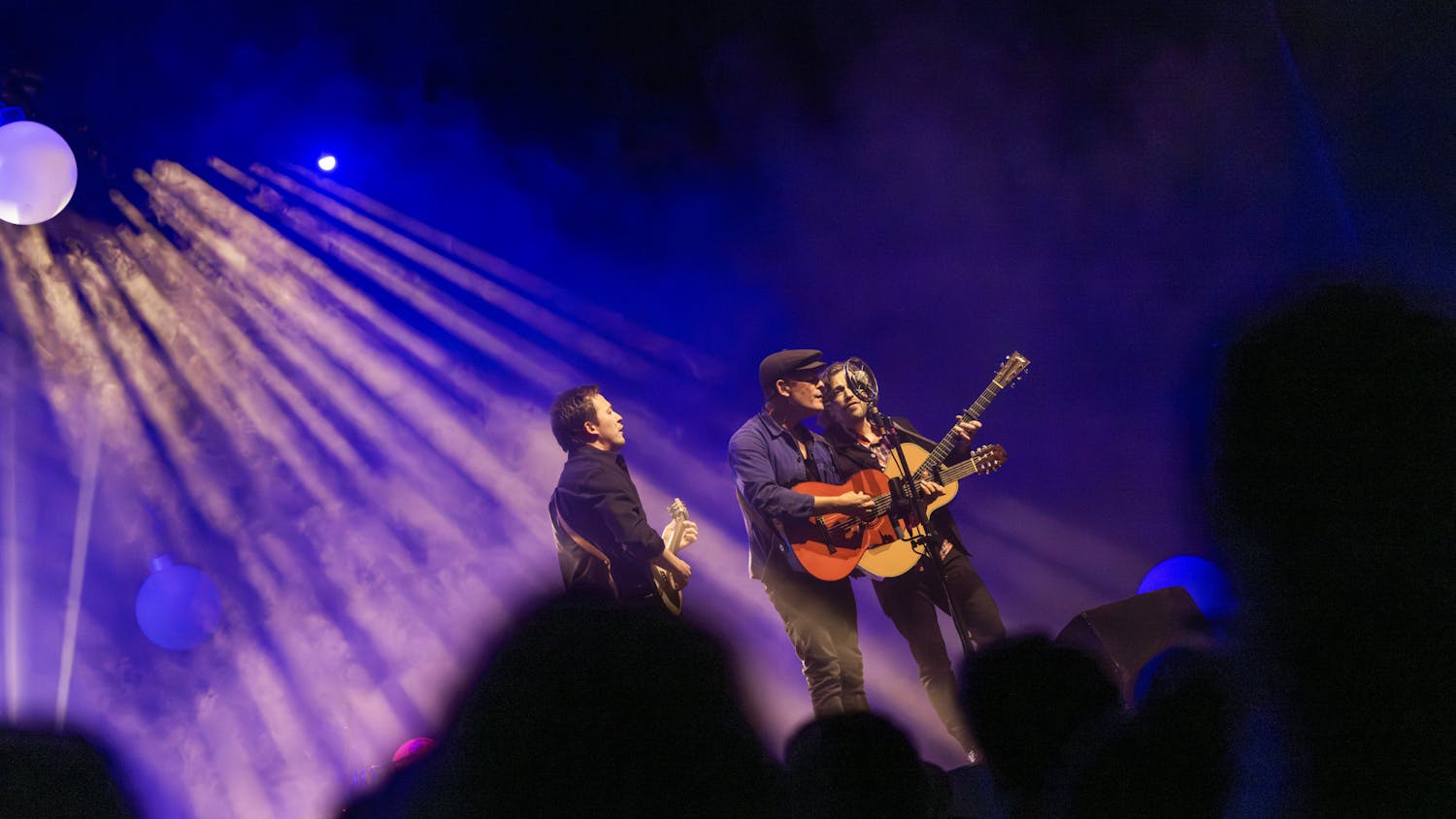I guess I'd call it environmental guilt—a feeling of being completely useless and also completely responsible for more than I want to accept. It’s the fear of extinction. It’s the discomfort of having my survival instincts kick in, and being confused as to why some people seem so unafraid of the danger. It’s the anger I feel when someone asks me why I protest. It’s the disappointment of forgetting my metal straw, or worse yet, the disappointment of knowing my metal straws won’t save me. It’s hopelessness and helplessness. I feel so guilty.
Egypt is my home. For the five years I lived there, I breathed in over 100 micrograms per cubic meter of fine particulate matter—the most damaging type of air pollution—every year. And no one seemed to care.
The science curriculum at my school included a study of the greenhouse effect and grim predictions of global warming, but these seemed more like cautionary tales than calls to action. “That’s for your generation to handle,” they’d tell us.
I knew they were right. I knew this was my responsibility. But I also knew that my high school had a severe littering problem, that car pollution made my city’s air unbreathable, and that my country’s agriculture industry would collapse with the dwindling of freshwater resources. All of this felt like a little too much weight on the shoulders of a 17–year–old girl with no political power.
I try to use my privilege for good. My family lives comfortably, and my high school classmates had insane amounts of money and social connections. I knew we should be using all these advantages to help better the Earth, so we tried.
As part of my school’s business club, I collaborated with the Zabaleen—Cairo’s historic trash collecting community—to upcycle single–use plastics. Our startup, A Cleaner Egypt (ACE), collected plastic water bottles from campus and turned them into bracelets. I liked having a part in extending the life cycle of these plastics, but I knew they too would eventually end up in a landfill and burn. My actions didn’t really stop my classmates from buying tons of plastic water bottles and chucking them carelessly in the trash.
So how much were we really accomplishing? Was I doing anything at all to help our planet, or was I making an empty buck off a high school start–up?
My feelings of helplessness returned. I took refuge in maintaining some environmentally friendly habits. I turned off my air conditioner and lights when I didn’t need them. I bought a reusable water bottle. I disposed of plastics in the appropriate bins at school, even though it was tacitly understood by most students that recycling in Egypt was a farce. Some studies claim 12% as the magic number: only 12% of waste generated is properly disposed of or recycled.
I did the most a single person could do: I encouraged others to follow my lead. I remember arguing with a friend over this, telling him how much it bothered me to see him buy plastic water bottles every day at lunch.
“I’m just one person. Whether or not I buy this bottle isn’t going to stop Dasani from making their product,” he told me.
I was upset at his words, but also didn’t quite know what to say. I wondered if maybe he was right. I told him that every person’s actions counts, but it started to sound like I needed convincing myself.
Coming to America felt like a second chance. I knew people in the States were more informed about climate change than some of my peers in Egypt. I had heard of companies going carbon–neutral and knew of debates over the Green New Deal. When my plane landed in Arizona this summer, I hoped this awareness would make me feel less useless.
That was before my brother sent me a Twitter thread. It was a slap in the face.
I didn’t know how little I knew about global warming. I didn’t know that 100 companies are responsible for 71% of fossil fuel emissions.
I thought of my Dasani–obsessed friend from home. Could it be that this person, who I thought was so careless and so blind, was justified in his actions? Could it be that 100 massive corporations were counteracting every positive choice I’d ever made? Were they really controlling the fate of the species? My fate?
The despair nearly suffocated me. There is no deeper sadness than feeling small.
So I changed my approach. I was done making small choices. None of my science classes in high school told the full story. We learned about carbon footprints, but never about the revolution needed to end them.
I’d seen my American friends posting videos of climate marches on their Snapchat stories. I knew that in coming here, I could take an active role in my democracy in a way that I couldn’t as an American living overseas.
When I got to campus, I joined Fossil Free Penn. I marched downtown with them for the Global Climate Strike. Their Friday sit–ins became a part of my weekly routine. And last week, I nearly lost my voice chanting and singing by their side at the Board of Trustees meeting.
I am part of something larger here. Instead of working in a microcosm, it feels like I’m contributing to a movement.
But in a way, I’ve become more cynical. Personal actions—at least in a vacuum—seem less significant than they once did. At the same time, becoming active in a bigger fight empowers me. I’m sick of people obsessing over metal straws, but I bring mine with me wherever I go. It’s in my backpack at every Friday sit–in.
I suppose now that I’m taking big steps, the smaller ones will feel less stupid. I’ve finally started to reconcile my fixation with sustainable personal habits with my desire to strike against the fossil fuel industry. These days, I strive to do both.
This is an existential crisis for me, and finally, it seems like people around me are as terrified as I am. Far from creating an echo chamber of panic and calamity, joining a climate action club has energized me. It proves the power of numbers without dismissing my individual initiative. It gives me more influence than I ever dreamed of having in high school, while also justifying the earlier habits I adopted.
Climate action on Penn’s campus gives me an incredible sense of purpose. Don’t get me wrong, it feels good to be part of something—but I’m still utterly pissed off. The difference is that here, I get to be pissed off alongside a group of equally angry, intelligent people. I get to sit, scream, jump, sing, and chant next to people who are as driven as I am to champion the defense of our planet. Here, I am a fighter.







